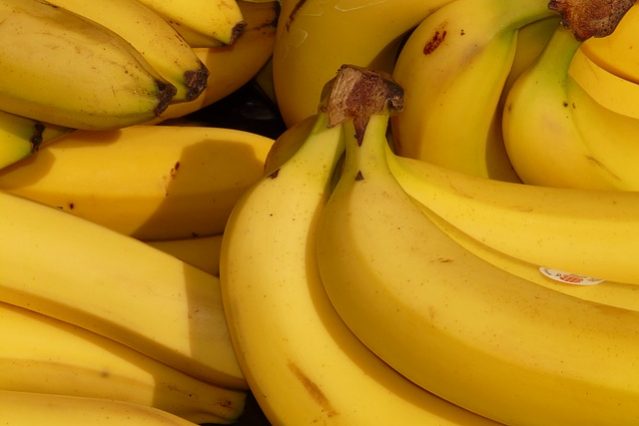Watermelons, nectarines, melons, plums… Summer is the time when the greatest variety of fruits can be found in the market to take a break from the food routine. Yet, there are fruits that are available all year round such as apples, oranges or bananas.
Due to their year-round permanence in grocery stores bananas are a perfect source of nutrients to add to one’s diet. Bananas from the Canary Islands are the most famous in Spain.
What do bananas offer?
Although they are mainly known for their high potassium content, the truth is that they are also a rich source of two other minerals, magnesium and phosphorus, as Ana Molina Jiménez, pharmacologist, dietitian and nutritionist at AM Nutrición Integral points out.
In addition to these minerals, Molina also highlights the content of folic acid, vitamin C and vitamin B6 and, depending on the degree of maturation, some levels of fiber and sugar.
Regarding whether there is any specific limit or amount for the consumption of bananas, Molina appeals to common sense and the seasonality of fruits. For her, the ideal formula is to “try different fruits to obtain different nutrients,” she said.
Benefits…
In sport
It is common to see athletes eating bananas before, during or after training or competing. This is due to their high content of potassium, magnesium and phosphorus. The combination of these three minerals promotes muscle recovery and nerve impulses. Specifically, potassium benefits blood pressure and muscle activity.
“It also has a small amount of sodium,” Molina said, which along with its content of sugar, potassium and magnesium, makes it ideal for muscle recovery, which “is infinitely better, healthier and less fattening than any commercial isotonic beverage” that is usually consumed.
Gut transit
The fiber contained in bananas is known as fructo-oligosaccharides and helps gut transit. According to Ana Molina, the less ripe the fruit is, the higher the fiber content, so it is recommended for “cases of diarrhea, as it helps controlling it”, she said.
On the other hand, fructo-oligosaccharides not only influence transit but once they are fermented by the gut flora, “they produce substances that also benefit the immune system,” she explained.
For the entire population
Although it is a fruit recommended for the entire population, Ana Molina advises it above all, for children or for people who require a better nutrition. For children, bananas are a great source of energy as well as for older people for whom Molina advises their consumption.
Due to their benefits for the immune system, Molina advises them for people who have suffered from a disease that left them weak or for those who suffer cases of permanent stress, which makes their immune system weaken.
The only restriction that Molina points out regards those who suffer from kidney failure. These people need a low potassium diet, so the consumption of bananas should be regulated depending on the other sources of this mineral integrated into the their diets.
Myth or Reality?
Bananas have always been involved in a few myths that are part hoax and part truth. One of the most entrenched myths is that bananas are fattening and according to Ana Molina, this is totally false.
Ripe bananas have more sugar than green bananas, but they are not necessarily fattening. This fruit is usually incorporated to the diets of people with diabetes or people who want to lose weight since “it produces a sensation of satiety,” Molina said. She emphasizes that what makes you fat are excesses such as “beers or extra bread,” processed fats or sedentarism; not fruit.
It is also commonly said that bananas prevent cancer. The first thing Ana Molina insists on is that “no food cures or prevents cancer on its own, it is the whole diet which promotes prevention.”
Molina recognizes that the substances that the fructo-oligosaccharides in bananas produce when they are fermented by the gut flora – butyric acid and propionic acid –, have been studied and can be beneficial for prevention, but bananas can’t really be called an “anti-cancer” food.
Bananas: properties, benefits and myths
Date: September 3rd, 2019
By: Daniel Brito
Link: https://www.efesalud.com/platano-propiedades-beneficios-mitos/
Nutrigenomics Institute is not responsible for the comments and opinions included in this article






